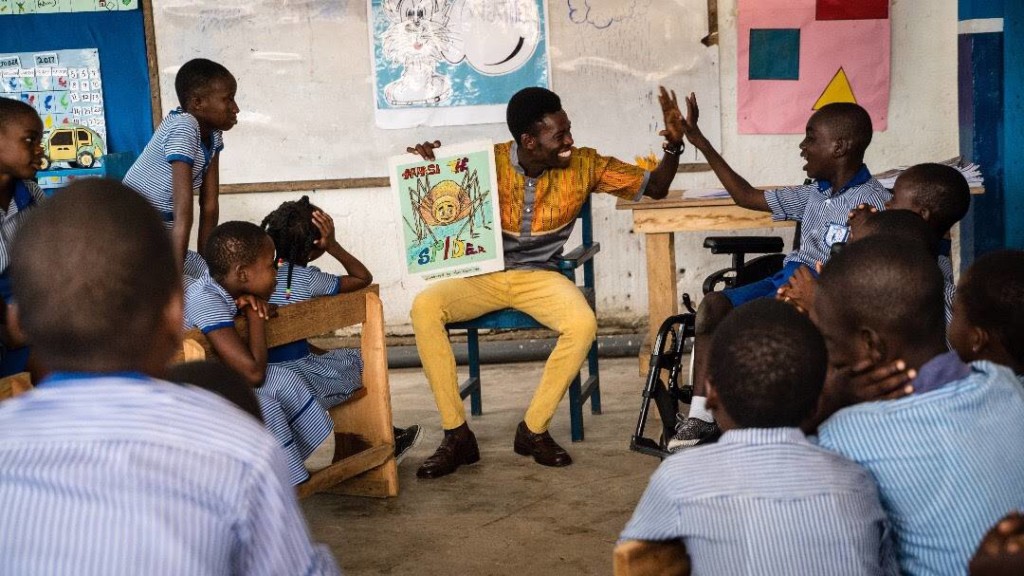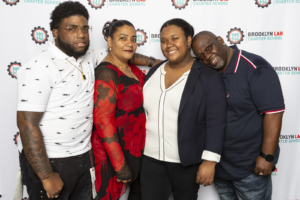Post-Pandemic Education: Public-Private Partnerships Are Critical in Developing Countries

By: Corina Gardner
Before schools started to reopen this spring, more than 80 public education instructors in Ghana participated in virtual training sessions that featured Sesame Street Muppets Zobi and Kami, along with Ghanaian actress Matilda Asante playing their teacher Ms. Efia.
The sessions, designed to help teachers make learning interactive and enjoyable for children, originated at Sesame Workshop. They are part of a program, called the Techniques for Effective Teaching (TFET), initially developed by Sesame Workshop and the IDP Foundation (IDPF) to help improve learning outcomes in low-fee private schools in Ghana. Now TFET is being used to instruct public school teachers through an innovative partnership between IDPF, Sesame Workshop, and the Ghana Ministry of Education’s Tertiary Education Commission (GTEC).
While educational institutions were closed to in-person teaching and learning activities due to the COVID-19 outbreak, the training was delivered virtually to Professional Development Coordinators (PDCs) from all the 46 Colleges of Education in Ghana. These PDCs are currently passing on the TFET content to all 1,900 tutors at the colleges. By mid-2021, around 45,000 pre-service teachers will have been trained on the TFET curriculum.
As schools in developing countries reopen after the COVID-19 pandemic, innovative partnerships like these are needed more than ever to create engaging classrooms, improve access to education, and close the learning gap for students in underserved communities, where progression from primary to secondary school was already low.
Last year, UNESCO estimated that about 24 million students (at all levels) were at risk of not returning to care centers, schools, universities, and training institutions, including 10.9 million students in primary and secondary levels. The most students at risk are in South and West Asia (5.9 million) and sub-Saharan Africa (5.3 million). About 258 million children and youth were already out of school before the pandemic.
The digital divide became more apparent during the pandemic as education systems and teachers grappled with implementing distance learning, often without guidance, training, or resources. Although 90% of governments adopted some form of remote learning during COVID-19 school closures, 31% of school children globally either did not have the necessary technology at home or were not reached by the remote learning policies. The highest rate of children that were not reached was in sub-Saharan Africa. Innovations are needed to enable children to learn both in schools and at home. Otherwise, the most vulnerable pupils, disproportionately affected by the pandemic and ill-served by remote learning, are likely to disengage from education.
All education stakeholders, public and private, urgently need to readdress education delivery, both in terms of access to schooling and teaching methods. Public-private partnerships that promote cooperation and innovation across the board—in pedagogical methods, school and classroom management, teacher training, regulatory frameworks, and policy development—can help get this done. New alliances, including collaborations between private funders and government, are key to creating more ‘public goods’ in education that better serve the world’s most disadvantaged students, according to a report from the Jacobs Foundation and L.E.K. Consulting.
For private sector organizations to contribute to broader education objectives, supportive regulatory environments are essential. The Education Regulatory Bodies Act 2020, adopted in Ghana last August, empowered a new government entity to develop, oversee, and enforce quality standards in pre-tertiary public and private schools. It has given the new National Schools Inspectorate Authority the power to recommend that pre-tertiary institutions be managed through public-private partnerships.
This regulatory development, which will hold all schools to higher quality standards, enabled IDPF to make the TFET training program available to pre-service public school teacher education institutions in Ghana. The 14 modules in the TFET program, each with a 10-minute video, cover literacy and numeracy teaching skills as well as other essential topics including classroom and time management, the creative use of low-cost resources, developing self-confidence among girls, and making classrooms supportive of children with disabilities.
Before the partnership with GTEC, TFET was used to train more than 1,500 teachers in more than 120 low-fee private schools that are part of IDPF’s Rising Schools Program in Ghana. Working with local finance partner Sinapi Aba Savings and Loans, the program offers below-market loans to proprietors of these schools along with free school management and teacher training. These independent schools, serving economically disadvantaged families, are mostly single-site institutions run by dedicated education entrepreneurs in the community. TFET was created to address two of the schools’ biggest challenges: the lack of qualified teachers and classroom instruction based on rote learning and memorization.
Even prior to the pandemic there was an urgent need to focus on equipping teachers in the developing world with a wider skillset. According to UNESCO, in 2019 only 62% of teachers had received the minimum organized teacher training required for teaching in Ghana. Within the private sector, which accounts for more than 32.7% of enrollment, only 15% of teachers are adequately trained, according to data from the Ministry of Education. That means more than 50,000 teachers in non-state schools have no formal training.
The government of Ghana is addressing these challenges by introducing a new standard-based curriculum for all schools, which is expected to be delivered through interactive pedagogies like TFET, making this partnership a true milestone in the improved learning outcomes journey. IDPF and Sesame Workshop welcome the government’s role in providing effective quality assurance, with incentives for high performance and consequences for poor performance.
Improving access to quality education in developing countries is key to alleviating intergenerational poverty, and we will never achieve this without public-private collaboration. We all have a collective responsibility for the education of our next generation—and only when all stakeholders work together will the greatest number of children, regardless of where they go to school, have the chance to reach their full potential.
For more, see:
- Invention Opportunity In Early Learning And Development
- Four Strategies for School Leaders to Build Lasting and Positive Change during COVID-19
Corina Gardner is the Executive Director of IDP Foundation. Before joining the IDP Foundation, she served as Director of Global Strategy for the Nike Foundation’s Girl Effect, where she led efforts to shift negative social norms in developing countries.
Stay in-the-know with innovations in learning by signing up for the weekly Smart Update.







0 Comments
Leave a Comment
Your email address will not be published. All fields are required.